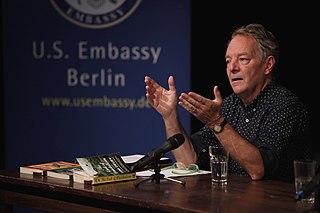A Quote by Zadie Smith
Nabokov, who I loved more than any other writer when I was young, had such contempt for dialogue. When I was younger, I never wrote a word of dialogue because of him. I thought it was a childish part of a novel.
Related Quotes
This involves more than I can discuss here, but do it. Read the writers of great prose dialogue-people like Robert Stone and Joan Didion. Compression, saying as little as possible, making everything carry much more than is actually said. Conflict. Dialogue as part of an ongoing world, not just voices in a dark room. Never say the obvious. Skip the meet and greet.
On the whole, dialogue is the most difficult thing, without any doubt. It's very difficult, unfortunately. You have to detach yourself from the notion of a lifelike quality. You see, actually lifelike, tape-recorded dialogue like this has very little to do with good novel dialogue. It's a matter of getting that awful tyranny of mimesis out of your mind, which is difficult.
I got into dialogue because my parents began taking me to see plays from when I was very young. Too young, often, to understand the play I was watching: Who's Afraid Of Virginia Woolf when I was nine years old; That Championship Season when I was ten years old. But I loved the sound of dialogue; it sounded like music to me and I wanted to imitate that sound.
His parents never talked about how they met, but when Park was younger, he used to try to imagine it. He loved how much they loved each other. It was the thing he thought about when he woke up scared in the middle of the night. Not that they loved him--they were his parents, they had to love him. That they loved each other. They didn't have to do that.
What is natural in me, is natural in many other men, I infer, and so I am not afraid to write that I never had loved Steerforth better than when the ties that bound me to him were broken. In the keen distress of the discovery of his unworthiness, I thought more of all that was brilliant in him, I softened more towards all that was good in him, I did more justice to the qualities that might have made him a man of a noble nature and a great name, than ever I had done in the height of my devotion to him.






































